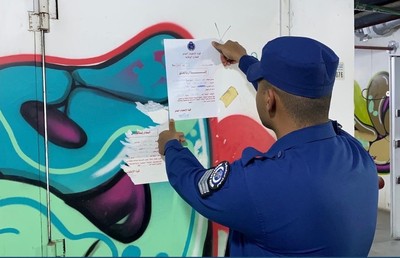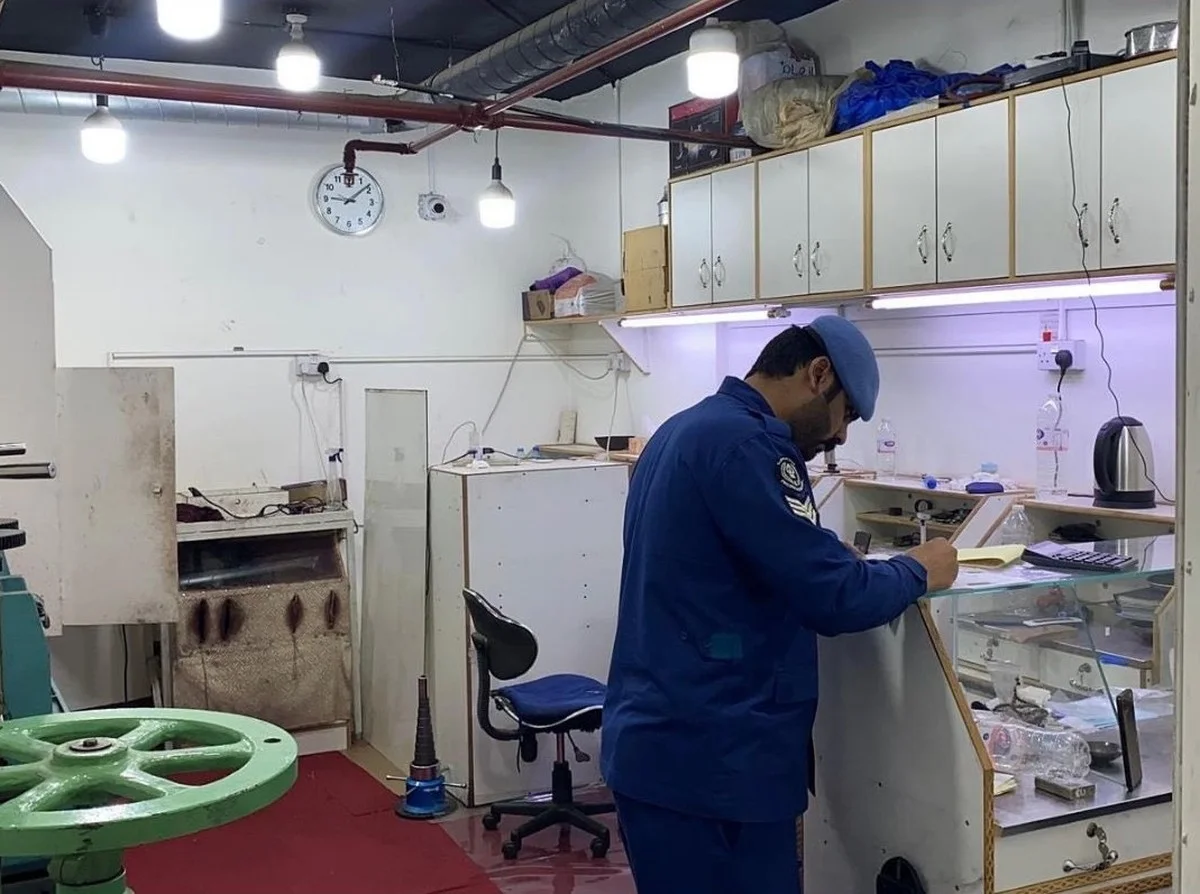KUWAIT CITY, Sept 22: The Criminal Court on Monday sentenced a citizen to 14 years in prison for murdering an Asian domestic worker. Case files indicate that the citizen beat the domestic worker to death and then buried her in the garden of his home in Saad Al-Abdullah. The court affirmed the citizen’s responsibility for his actions after referring the case to a psychiatric hospital to assess his mental state. The court also sentenced the father of the citizen, brother and expatriate wife to one year in prison with hard labor for covering up the crime and failing to report it. Earlier, the Public Prosecution charged the killer’s brother and expatriate wife with covering up the crime and ordered the detention of the killer and several other individuals, including an Asian worker, on charges of violating the sanctity of the deceased and failing to report the incident. Meanwhile, the Criminal Court postponed until October 13 the trial of the man accused of killing his wife in the desert on the first day of Eid Al-Fitr, and a new lawyer was appointed for the accused. The court made this decision after the defense team of the defendants withdrew from the case and left the courtroom following the pleadings of the Public Prosecution. In her opening statement, Public Prosecutor Hessa Al-Hamoud emphasized the sanctity of the marriage contract. She pointed out that “the marriage contract is a solemn covenant established by Allah from the seven heavens. It is a sacred bond in which Allah commanded good treatment. However, the accused disregarded this covenant when he committed a heinous crime, taking the life of his wife on a day of joy and happiness.
He turned the marital home into a battlefield. He planned and resolved to kill his wife on the blessed day of Eid Al- Fitr. He chose a dark, remote location in the desert, ensuring that no one could see him. There, he initially her, expressing love and desire permitted by Allah, before brutally beating her until her body bled. “When the victim realized the violence would not end, she attempted to escape, opening the vehicle door and running while screaming for safety. The accused, however, drove at breakneck speed, deliberately running over her multiple times, shattering her bones and dismembering her organs. It was as if his heart was devoid of mercy. He had forgotten that she was his wife and the mother of his four children.” Al-Hamoud revealed, “We have conclusive evidence that the crime was premeditated and deliberate, and that the accused remained calm and composed before, during, and after the act.” She supported her plea with the following:
– The first witness (the victim’s brother) stated that on the night of the incident, the defendant’s brother called him, saying the defendant had sent his location and asked him to follow. Repeated calls to the defendant elicited a cold reply: “I killed Kholoud,” followed by laughter, claiming he had returned her to her family’s home.
– The second witness (the victim’s brother) corroborated the first witness regarding the calls and the luring of the victim to the crime scene.
– The third witness (the victim’s sister) stated that her sister went with the victim believing there was a surprise awaiting her, unaware it was a premeditated attack.
– The confession of the accused: “I deliberately collided with her.” He admitted during investigations that he had been driving throughout Kuwait since morning, deceived his wife into accompanying him, and deliberately chose a remote, dark location where no one would see him. He said, “I was thinking where to go, in a place where there was no one… I followed her and deliberately collided with her.”
– His criminal record: The prosecutor emphasized, “We are dealing with a dangerous individual, capable of planning before and during the execution of crimes. His criminal record, which includes multiple felonies and misdemeanors supported by final judgments, culminated in the cold-blooded murder of his wife, shattering his family and depriving his children of their mother.” Al-Hamoud urged the court to impose the harshest penalty prescribed by law, as retribution for the crime that took an innocent life and violated the most sacred covenant.
She concluded with the verse: “Read your record. Sufficient is yourself against you this Day as a reckoner.” [Al-Isra: 14] Meanwhile, Attorney Abdul Mohsen Al-Qattan, representing the victim’s heirs, addressed the defendant’s claim of intoxication. He refuted it using the following scientific and technical evidence:
– First, the Criminal Evidence Report – Alcohol and Liquor Section No. 1033K/2025 proved no trace of ethyl or methyl alcohol in the defendant’s urine sample.
– Second, the Criminal Evidence Report – Toxicology Section No. 1167S/2025 confirmed the presence of a benzodiazepine derivative in the urine sample. This does not absolve him, as he denied consuming any psychotropic substance. The law holds anyone who intentionally consumes intoxicants liable for crimes committed under their influence.
– Third, Article 23 of the Penal Code stipulates that liability from intoxicants arises only if they are ingested involuntarily, causing loss of ability to sense and choose, which was not the case here.
– Fourth, proving intent to kill subjective and it is deduced from the perpetrator’s behavior before and during the commission of crime.
It has been proven that the defendant lured the victim to a secluded location, severely beat her, and deliberately ran over her, demonstrating premeditation. He stressed that medical reports and expert evidence confirmed that the defendant was not mentally ill at the time of the crime, and any intoxicants did not impair his will or criminal responsibility.
He said this principle was affirmed in Appeal No. 235/2006 and Appeal No. 28052/2007, in which the Court of Cassation ruled that such claims do not negate liability if there was no genuine loss of consciousness or choice. He also confirmed the presence of elements of kidnapping, punishable by death under Article 180 of the Penal Code, as well as premeditated murder and intentional acts under Article 149 of the Penal Code. They demanded the maximum penalty be imposed on the accused to protect public and private rights.
By Jaber Al-Hamoud Al-Seyassah/Arab Times Staff

 Politics24 hours ago
Politics24 hours ago
 Politics21 hours ago
Politics21 hours ago
 Business24 hours ago
Business24 hours ago
 Latest News23 hours ago
Latest News23 hours ago
 Politics23 hours ago
Politics23 hours ago
 Latest News22 hours ago
Latest News22 hours ago
 Politics10 hours ago
Politics10 hours ago
 Latest News9 hours ago
Latest News9 hours ago





















